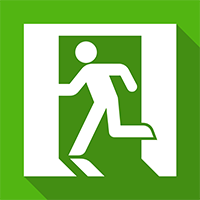-
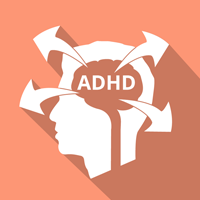 ADHD is a chronic condition that creates a range of persistent symptoms such as difficulty sustaining attention, hyperactivity and impulsive behaviour. The course covers the definitions of ADHD, the different types of ADHD and how to recognise some key signs and symptoms. Beyond this the course will look at some of the possible causes of ADHD, how it is diagnosed and how it can be treated, including environmental changes, types of therapy and medication that can be prescribed. Approved by CPD – Duration 45 mins*
ADHD is a chronic condition that creates a range of persistent symptoms such as difficulty sustaining attention, hyperactivity and impulsive behaviour. The course covers the definitions of ADHD, the different types of ADHD and how to recognise some key signs and symptoms. Beyond this the course will look at some of the possible causes of ADHD, how it is diagnosed and how it can be treated, including environmental changes, types of therapy and medication that can be prescribed. Approved by CPD – Duration 45 mins* -
 The alcohol licensing laws of the United Kingdom regulate the sale and consumption of alcohol. Any organisation, business or individual who wishes to sell alcohol must have a licence. This is obtained from a Licensing Authority. This online Alcohol Personal Licence Holder E-Learning course starts with an overview of UK alcohol licensing laws and the importance of promoting the four key licensing objectives. The three main types of licence are covered, including applications, conditions, representations, and reviews. You’ll learn about the legal duties of personal licence holders and how to deal with Licensing Authorities, along with information relating to objections, fees and hearings. The Alcohol Personal Licence Holder online course will also discuss issues surrounding Temporary Event Notices and mandatory conditions, which are compulsory for all licensed premises. The online Alcohol Personal Licence Holder E-Learning course also looks in detail at the major issue of age verification – and you’ll learn about the licensing laws and best practices as they apply to children and under 18s. Finally, the online Alcohol Personal Licence Holder course outlines the responsibilities involved in alcohol retailing, including drinking guidelines and how to avoid and reduce conflict. This Alcohol Personal Licence Holder E-Learning course is aimed at anyone working in, or wanting a career in the hospitality industry who wants to open up promotion opportunities or to move into a role that requires a personal licence.
The alcohol licensing laws of the United Kingdom regulate the sale and consumption of alcohol. Any organisation, business or individual who wishes to sell alcohol must have a licence. This is obtained from a Licensing Authority. This online Alcohol Personal Licence Holder E-Learning course starts with an overview of UK alcohol licensing laws and the importance of promoting the four key licensing objectives. The three main types of licence are covered, including applications, conditions, representations, and reviews. You’ll learn about the legal duties of personal licence holders and how to deal with Licensing Authorities, along with information relating to objections, fees and hearings. The Alcohol Personal Licence Holder online course will also discuss issues surrounding Temporary Event Notices and mandatory conditions, which are compulsory for all licensed premises. The online Alcohol Personal Licence Holder E-Learning course also looks in detail at the major issue of age verification – and you’ll learn about the licensing laws and best practices as they apply to children and under 18s. Finally, the online Alcohol Personal Licence Holder course outlines the responsibilities involved in alcohol retailing, including drinking guidelines and how to avoid and reduce conflict. This Alcohol Personal Licence Holder E-Learning course is aimed at anyone working in, or wanting a career in the hospitality industry who wants to open up promotion opportunities or to move into a role that requires a personal licence.Alcohol Personal Licence Holder Modules
Introduction Premises Licences Personal Licences and Club Premises Certificates Dealing With Licensing Authorities Types of Businesses Selling Alcohol Representations and Mandatory Conditions Licensing Authority Powers Children and Under 18s Responsibility in Alcohol Retailing On completion of the course we provide you access to our online invigilated examination which can be taken anywhere. Our market-leading examination system delivers the final assessment direct to your candidate via the internet, invigilated using screen sharing and webcam, allowing them to receive their alcohol license quicker and easier without the stress and hassle of visiting an exam centre. Please ask us for further details. Approved by CPD, Institute of Hospitality & Laser awards - Duration 90 mins* plus examination. -
 This course will provide you with an understanding of what autism is and how it affects a child’s daily life. It will touch on what factors contribute towards a child developing autism as well as some of the typical behaviours associated with it and how to can provide effective support for those with the condition. It also discusses what happens during the diagnosis process, some of the intervention methods that can help manage the condition and suggests some simple adaptations you can make to improve a child with autism’s day to day life. Approved by CPD – Duration 30 mins*
This course will provide you with an understanding of what autism is and how it affects a child’s daily life. It will touch on what factors contribute towards a child developing autism as well as some of the typical behaviours associated with it and how to can provide effective support for those with the condition. It also discusses what happens during the diagnosis process, some of the intervention methods that can help manage the condition and suggests some simple adaptations you can make to improve a child with autism’s day to day life. Approved by CPD – Duration 30 mins* -
 Current legislation set out by the Health and Safety at Work Act along with the HSE’s updated code of practice known as L8, state that companies and building owners have a legal duty to manage Legionella. Our interactive Legionella Management E-Learning training course is aimed at all employers and staff to assist them in identifying the danger that Legionella poses, as well as covering ways to identify and assess sources of risk from Legionella on the premises. Our Online Legionella Management course also gives you enough knowledge to get a Legionella control programme off the ground yourself – or make confident, informed choices when commissioning others to take this on for you. This e-learning course is primarily aimed at building and facilities managers and maintenance professionals that have nominated responsibilities for water systems.
Current legislation set out by the Health and Safety at Work Act along with the HSE’s updated code of practice known as L8, state that companies and building owners have a legal duty to manage Legionella. Our interactive Legionella Management E-Learning training course is aimed at all employers and staff to assist them in identifying the danger that Legionella poses, as well as covering ways to identify and assess sources of risk from Legionella on the premises. Our Online Legionella Management course also gives you enough knowledge to get a Legionella control programme off the ground yourself – or make confident, informed choices when commissioning others to take this on for you. This e-learning course is primarily aimed at building and facilities managers and maintenance professionals that have nominated responsibilities for water systems.Basic Legionella Management Modules
What is Legionella? Risk Areas Legislation Risk Management Water System Monitoring Cooling System Awareness Approved by IIRSM, Gatehouse Awards & CPD - Duration 75 mins* -
 This online course covers a range of important topics related to mental health conditions that children and young people can experience and the many ways they can be offered support. The Children and Young People’s Mental Health course starts by defining mental illness and mental health problems and their impact on children and young people. There’s extensive coverage of the many types of mental illnesses found in this group, and how they can be recognised and treated. This online Children and Young People’s Mental Health course will look at attention deficit hyperactivity disorder, depression and self-harm, and eating disorders, including anorexia, bulimia, and binge eating. Other mental illnesses covered include schizophrenia, autism, learning difficulties, post-traumatic stress disorder, bipolar disorder, panic disorder, sleep apnoea and social phobia. Children and Young People’s Mental Health online course will discuss symptoms and causes – and the actions to take if you suspect someone has a mental health condition. The online Children and Young People’s Mental Health course will discuss the role of mental healthcare professionals, such as a psychologists, psychiatrists, psychiatric nurses or clinical social workers – and show how parents can become involved. Treatments covered include psychotherapy, mindfulness, play therapy, cognitive behavioural therapy and medication. The Children and Young People’s Mental Health E-leaning course will deal with prognosis and prevention – and show how to promote positive mental health and dispel common myths. Finally, you’ll learn practical techniques to help you talk to children or young people about their mental health.
This online course covers a range of important topics related to mental health conditions that children and young people can experience and the many ways they can be offered support. The Children and Young People’s Mental Health course starts by defining mental illness and mental health problems and their impact on children and young people. There’s extensive coverage of the many types of mental illnesses found in this group, and how they can be recognised and treated. This online Children and Young People’s Mental Health course will look at attention deficit hyperactivity disorder, depression and self-harm, and eating disorders, including anorexia, bulimia, and binge eating. Other mental illnesses covered include schizophrenia, autism, learning difficulties, post-traumatic stress disorder, bipolar disorder, panic disorder, sleep apnoea and social phobia. Children and Young People’s Mental Health online course will discuss symptoms and causes – and the actions to take if you suspect someone has a mental health condition. The online Children and Young People’s Mental Health course will discuss the role of mental healthcare professionals, such as a psychologists, psychiatrists, psychiatric nurses or clinical social workers – and show how parents can become involved. Treatments covered include psychotherapy, mindfulness, play therapy, cognitive behavioural therapy and medication. The Children and Young People’s Mental Health E-leaning course will deal with prognosis and prevention – and show how to promote positive mental health and dispel common myths. Finally, you’ll learn practical techniques to help you talk to children or young people about their mental health.Children and Young People’s Mental Health Course Modules:
Introduction Mental illnesses in children and young adults: Part 1 Mental illnesses in children and young adults: Part 2 Mental illnesses in children and young adults: Part 3 Diagnosis and treatments Prognoses and outcomes Support Signs of mental illness in children and young people Approved by Gatehouse Awards – Duration 90 mins* -
 This course covers what you need to know about the Control of Substances Hazardous to Health (COSHH) So what do we mean by ‘Substances Hazardous to Health’? In legal terms, these are substances that are classified as “very toxic, toxic, harmful, corrosive or Irritant” under the Classification, Labelling and Packaging Regulation (CLP). This was a new regulation that came into force in January 2009 dovetailing with a set of regulations called REACH. REACH is a European Union regulation concerning the Registration, Evaluation, Authorisation and Restriction of Chemicals, which came into force on 1st June 2007. One of the main aims of REACH is to provide a high level of protection for human health and the environment from the use of chemicals. This Online Control of Substances Hazardous to Health (COSHH) course is aimed at anyone exposed to Substances Hazardous to Health at work and line managers with responsibility for such people. This Online Control of Substances Hazardous to Health (COSHH) E-Learning course will provide candidates with an understanding of substances that cause hazards to health in their work life and guidance on exposure, legislation and risk assessment.
This course covers what you need to know about the Control of Substances Hazardous to Health (COSHH) So what do we mean by ‘Substances Hazardous to Health’? In legal terms, these are substances that are classified as “very toxic, toxic, harmful, corrosive or Irritant” under the Classification, Labelling and Packaging Regulation (CLP). This was a new regulation that came into force in January 2009 dovetailing with a set of regulations called REACH. REACH is a European Union regulation concerning the Registration, Evaluation, Authorisation and Restriction of Chemicals, which came into force on 1st June 2007. One of the main aims of REACH is to provide a high level of protection for human health and the environment from the use of chemicals. This Online Control of Substances Hazardous to Health (COSHH) course is aimed at anyone exposed to Substances Hazardous to Health at work and line managers with responsibility for such people. This Online Control of Substances Hazardous to Health (COSHH) E-Learning course will provide candidates with an understanding of substances that cause hazards to health in their work life and guidance on exposure, legislation and risk assessment.Control of Substances Hazardous to Health (COSHH) Modules
Introducing COSHH Different Types of Hazard Different Types of Exposure Regulations and Approved Labelling Assessing COSHH Risks The Risk Assessment in Practice Exposure Control Staying in Control Training and Emergency Planning Course Summary Approved by IIRSM & Institute of Hospitality - Duration 125 mins* -
 This course explores the risk to workers caused by the Covid-19 virus and covers actions that can be taken by employers and employees to protect themselves and each other as they return to work. The content of this course is based on the latest information from the UK government and the NHS. It covers information about the virus, risk assessments and personal safety, along with how to make changes to the daily work environment to address these risks
This course explores the risk to workers caused by the Covid-19 virus and covers actions that can be taken by employers and employees to protect themselves and each other as they return to work. The content of this course is based on the latest information from the UK government and the NHS. It covers information about the virus, risk assessments and personal safety, along with how to make changes to the daily work environment to address these risks -
Sale!

The Management of Health and Safety at Work Regulations 1999 requires all employers to undertake Risk Assessments appropriate to their business.
Our online Risk Management tool produces a comprehensive Dance or Drama School Production Risk Assessment (England) suitable for Dance or Drama schools staging a production in a local theatre or school hall and is written for the purposes of applying for your BOPA license, Child Performance license, meeting your Local Authority or Venue requirements.
- Manual Handling - lack of training and/or incorrect handling/lifting
- Production Vehicle Movement (loading/unloading)
- Viral Illnesses (where applicable)
- Complaint/Conflict with Public
- Criminal Activity
- Use of Tools
- Working at Height - Use of Ladders/Tallescope
- Working at Height - Falling objects / rigging failures
- Flown equipment such as cloths, frenchmen, LX and other performance related items (where applicable)
- Installation of ground supported LX and Sound
- Installation and use of electrical equipment
- Cable management – lack of
- Fire
- Emergency evacuation - failure to facilitate, obstructions etc
- Excessive Noise levels (>95dB)
- First Aid - lack of
- Welfare – lack of toilets or handwashing facilities
- Welfare – child performers
- The choreography of show - lack of, or inappropriate
- Lack of mental health support available
- Food - Biological
- Use of Haze or effect (where used)
Click below to purchase your Dance or Drama School Production Risk Assessment (England) Risk Assessment.
Following purchase please follow the link in your confirmation email and complete the Questionnaire.
Your Dance or Drama School Production Risk Assessment (England) will be emailed to you within 15mins of submitting the Questionnaire.
-
Sale!

The Management of Health and Safety at Work Regulations 1999 requires all employers to undertake Risk Assessments appropriate to their business.
Our online Risk Management tool produces a comprehensive Dance or Drama School Production Risk Assessment (Wales) suitable for Dance or Drama schools staging a production in a local theatre or school hall in Wales and is written for the purposes of applying for your BOPA license, Child Performance license, meeting your Local Authority or Venue requirements.
- Manual Handling - lack of training and/or incorrect handling/lifting
- Production Vehicle Movement (loading/unloading)
- Viral Illnesses (where applicable)
- Complaint/Conflict with Public
- Criminal Activity
- Use of Tools
- Working at Height - Use of Ladders/Tallescope
- Working at Height - Falling objects / rigging failures
- Flown equipment such as cloths, frenchmen, LX and other performance related items (where applicable)
- Installation of ground supported LX and Sound
- Installation and use of electrical equipment
- Cable management – lack of
- Fire
- Emergency evacuation - failure to facilitate, obstructions etc
- Excessive Noise levels (>95dB)
- First Aid - lack of
- Welfare – lack of toilets or handwashing facilities
- Welfare – child performers
- The choreography of show - lack of, or inappropriate
- Lack of mental health support available
- Food - Biological
- Use of Haze or effect (where used)
Click below to purchase your Dance or Drama School Production Risk Assessment (Wales) Risk Assessment.
Following purchase please follow the link in your confirmation email and complete the Questionnaire.
Your Dance or Drama School Production Risk Assessment (Wales) will be emailed to you within 15mins of submitting the Questionnaire.
-
 Approved by Gatehouse Awards – Duration 30 mins*When people have good mental health, they are more likely to fulfil their potential. That means they enjoy work and cope easily with work situations. They have a happy family life and good social relationships. Organisations are required by law to promote and protect the mental well-being of their workforce. A comprehensive Mental Health Policy, along with easy-to-understand operating procedures, will incorporate mental health issues into established organisational thinking. It will make sure everyone knows how the organisation views and deals with workplace mental health. This online Developing a Workplace Mental Health Policy E-Learning course covers the steps that organisations should consider when developing and implementing a comprehensive workplace Mental Health Policy
Approved by Gatehouse Awards – Duration 30 mins*When people have good mental health, they are more likely to fulfil their potential. That means they enjoy work and cope easily with work situations. They have a happy family life and good social relationships. Organisations are required by law to promote and protect the mental well-being of their workforce. A comprehensive Mental Health Policy, along with easy-to-understand operating procedures, will incorporate mental health issues into established organisational thinking. It will make sure everyone knows how the organisation views and deals with workplace mental health. This online Developing a Workplace Mental Health Policy E-Learning course covers the steps that organisations should consider when developing and implementing a comprehensive workplace Mental Health PolicyDeveloping a Workplace Mental Health Policy Modules
Introduction Implementing a Workplace Mental Health Policy -
 Diabetes is a serious lifelong health condition that occurs when the amount of glucose, or sugar, in the blood is too high. If left untreated, high blood glucose levels can cause serious health complications. This course is aimed at people working in the health and social care sector and will provide an overview of the condition, the common symptoms that might indicate someone has diabetes, methods of diagnosis, some possible treatments and common complications that can affect those with the condition. Approved by CPD – Duration 45 mins*
Diabetes is a serious lifelong health condition that occurs when the amount of glucose, or sugar, in the blood is too high. If left untreated, high blood glucose levels can cause serious health complications. This course is aimed at people working in the health and social care sector and will provide an overview of the condition, the common symptoms that might indicate someone has diabetes, methods of diagnosis, some possible treatments and common complications that can affect those with the condition. Approved by CPD – Duration 45 mins* -
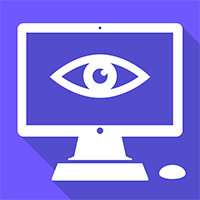 The Health and Safety (Display Screen Equipment) Regulations contain special directives covering DSE safety. Both employers and employee‐users have responsibilities under the legislation So what do we mean by display screen equipment? The first thing most people think of is a computer monitor. But that’s not the only thing it refers to display screen equipment could also mean laptops, tablet PCs, televisions, smartphones, CNC control pads, portable diagnostic screens or equipment containing cathode ray tubes, or CRTs. Our Display Screen Equipment Awareness E-Learning course is aimed at users of display screen equipment (DSE) and those responsible for assessing display screen equipment. A ‘user’ is anyone who regularly uses display screen equipment for a significant part of their normal work. In practice, if you use display screen equipment continuously for more than one hour a day, then you’re a ‘user’. This Online Display Screen Equipment Awareness E-Learning course fulfils your statutory training obligations and covers, among other things; the correct way to set up and use your display screen equipment safely. Reducing the risk of work related conditions.
The Health and Safety (Display Screen Equipment) Regulations contain special directives covering DSE safety. Both employers and employee‐users have responsibilities under the legislation So what do we mean by display screen equipment? The first thing most people think of is a computer monitor. But that’s not the only thing it refers to display screen equipment could also mean laptops, tablet PCs, televisions, smartphones, CNC control pads, portable diagnostic screens or equipment containing cathode ray tubes, or CRTs. Our Display Screen Equipment Awareness E-Learning course is aimed at users of display screen equipment (DSE) and those responsible for assessing display screen equipment. A ‘user’ is anyone who regularly uses display screen equipment for a significant part of their normal work. In practice, if you use display screen equipment continuously for more than one hour a day, then you’re a ‘user’. This Online Display Screen Equipment Awareness E-Learning course fulfils your statutory training obligations and covers, among other things; the correct way to set up and use your display screen equipment safely. Reducing the risk of work related conditions.Display Screen Equipment Awareness Modules
Introduction Legislation Protecting Your Body Adjusting Your Chair Adjusting Your Screen Work Arrangements Adjusting the Layout of Your Workstation Adjusting Your Work Environment Approved by IIRSM & CPD - Duration 50 mins* -
 Electricity is the lifeblood of modern society, it enhances our quality of life and we are becoming increasingly reliant on it to power tools and devices we use for work and entertainment. However, although electricity has many benefits it can also be a hidden killer as it can’t be seen, felt, smelled or heard until someone comes into contact with it. This online Electrical Safety E-Learning course will start by covering the many benefits electricity brings to society and its key components voltage, current, and resistance. The Electrical Safety online course will explain the two main types of electricity, cover UK accident and death statistics, and describe a simple way of remembering the electrical hazards. The online Electrical Safety course then goes on to provide basic instructions about how you could safely help someone you suspect has received an electric shock. Towards the end of the Electrical Safety E-Learning course it includes an overview of the main standards, guidance and legislation that control the use of electricity in the workplace, and finish off by looking at simple maintenance plans and portable appliance testing including who within an organisation would be best to carry out the various checks. Training staff in Electrical Safety is vital to protect your employees and allow them to understand their role and responsibilities regarding Electrical Safety in the workplace. IIRSM approval means that this course can be used in the future by those that need to prove they are continually developing themselves.
Electricity is the lifeblood of modern society, it enhances our quality of life and we are becoming increasingly reliant on it to power tools and devices we use for work and entertainment. However, although electricity has many benefits it can also be a hidden killer as it can’t be seen, felt, smelled or heard until someone comes into contact with it. This online Electrical Safety E-Learning course will start by covering the many benefits electricity brings to society and its key components voltage, current, and resistance. The Electrical Safety online course will explain the two main types of electricity, cover UK accident and death statistics, and describe a simple way of remembering the electrical hazards. The online Electrical Safety course then goes on to provide basic instructions about how you could safely help someone you suspect has received an electric shock. Towards the end of the Electrical Safety E-Learning course it includes an overview of the main standards, guidance and legislation that control the use of electricity in the workplace, and finish off by looking at simple maintenance plans and portable appliance testing including who within an organisation would be best to carry out the various checks. Training staff in Electrical Safety is vital to protect your employees and allow them to understand their role and responsibilities regarding Electrical Safety in the workplace. IIRSM approval means that this course can be used in the future by those that need to prove they are continually developing themselves.Electrical Safety Modules
Overview and Benefits of Electricity What is Electricity? How Electricity Can Cause Harm Legislation, Standards and Key Steps PAT Testing Standards and Guidance Approved by IIRSM – Duration 45 mins* -
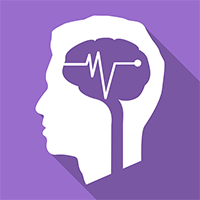 This course will give you an overview of epilepsy. It lists the methods of diagnosis, what a seizure is and how the brain can be affected. It will introduce some possible seizure triggers and describe what to do when someone has a seizure. It will also discuss some of the treatments offered to people with epilepsy and provide practical advice on what you can do if you witness someone having a seizure. Approved by CPD – Duration 30 mins*
This course will give you an overview of epilepsy. It lists the methods of diagnosis, what a seizure is and how the brain can be affected. It will introduce some possible seizure triggers and describe what to do when someone has a seizure. It will also discuss some of the treatments offered to people with epilepsy and provide practical advice on what you can do if you witness someone having a seizure. Approved by CPD – Duration 30 mins* -
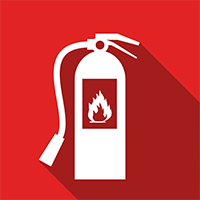 Current legislation, The Regulatory Reform (Fire Safety) Order 2005, applies to all workplaces regardless of the number of employees and requires employers to provide adequate training in fire awareness for all staff members. Our Online Fire Extinguisher training course aims to give all employees a basic introduction to identifying the different types of extinguisher available, determining which is the best extinguisher for the fire and the protocol of extinguishing a fire. This Fire Extinguisher E-Learning Course provides training in the use of different fire extinguishers and the protocol of tackling a fire. It is a cost-effective way for employers to fulfil their legal obligation to provide their employees with the necessary understanding of fire extinguishers. Candidates can progress through the modules at their own pace and in their own time to fit the training in around their work and personal life. The Online Fire Extinguisher E-Learning course is approved by leading industry bodies: The Institute of Hospitality, IIRSM, Gatehouse Awards & CPD.
Current legislation, The Regulatory Reform (Fire Safety) Order 2005, applies to all workplaces regardless of the number of employees and requires employers to provide adequate training in fire awareness for all staff members. Our Online Fire Extinguisher training course aims to give all employees a basic introduction to identifying the different types of extinguisher available, determining which is the best extinguisher for the fire and the protocol of extinguishing a fire. This Fire Extinguisher E-Learning Course provides training in the use of different fire extinguishers and the protocol of tackling a fire. It is a cost-effective way for employers to fulfil their legal obligation to provide their employees with the necessary understanding of fire extinguishers. Candidates can progress through the modules at their own pace and in their own time to fit the training in around their work and personal life. The Online Fire Extinguisher E-Learning course is approved by leading industry bodies: The Institute of Hospitality, IIRSM, Gatehouse Awards & CPD.Fire Extinguisher Modules
Fire Extinguishers Pre-Engagement Action Using a Fire Extinguisher Approved by Institute of Hospitality, IIRSM, Gatehouse Awards & CPD – Duration 25 mins* -
 Current legislation, The Regulatory Reform (Fire Safety) Order 2005, applies to all workplaces regardless of the number of employees and requires employers to provide adequate training in fire awareness for all members of their staff. Our Online Fire Marshal training courses are aimed at all employees to assist them in identifying and reducing the risk that fire presents in the workplace. Fire marshals (sometimes known as fire wardens) are civilians trained to assist in emergency fire evacuation procedures at businesses and other organizations. It is a legal obligation that workplaces must have sufficient fire marshals to deal with fire emergencies. This Fire Marshal E-Learning training course provides extensive knowledge of fire prevention, evacuation protocol and using fire extinguishers. It is a cost-effective way for employers to fulfil their legal obligation to provide their employees with the necessary understanding of fire awareness. Candidates can progress through the modules at their own pace and in their own time to fit the training in around their work and personal life. The Fire Marshal E-Learning course is approved by leading industry bodies: The Institute of Hospitality, IIRSM, Gatehouse Awards & CPD Please note, this course also contains all of the content in the Basic Fire Awareness and Fire Extinguisher courses.
Current legislation, The Regulatory Reform (Fire Safety) Order 2005, applies to all workplaces regardless of the number of employees and requires employers to provide adequate training in fire awareness for all members of their staff. Our Online Fire Marshal training courses are aimed at all employees to assist them in identifying and reducing the risk that fire presents in the workplace. Fire marshals (sometimes known as fire wardens) are civilians trained to assist in emergency fire evacuation procedures at businesses and other organizations. It is a legal obligation that workplaces must have sufficient fire marshals to deal with fire emergencies. This Fire Marshal E-Learning training course provides extensive knowledge of fire prevention, evacuation protocol and using fire extinguishers. It is a cost-effective way for employers to fulfil their legal obligation to provide their employees with the necessary understanding of fire awareness. Candidates can progress through the modules at their own pace and in their own time to fit the training in around their work and personal life. The Fire Marshal E-Learning course is approved by leading industry bodies: The Institute of Hospitality, IIRSM, Gatehouse Awards & CPD Please note, this course also contains all of the content in the Basic Fire Awareness and Fire Extinguisher courses.Fire Marshal Modules
Chemistry of Fire Common Causes of Fire Basic Safety Features in Buildings Introduction to Fire Extinguishers What to do in Cases of Fire? Fire Statistics Current Fire Safety Legislation Fire Risk Preventative Measures Safety Features within Buildings Role of the Fire Marshal Action on Fire Discovery Fire Drills and Evacuation Fire Extinguishers Pre-Engagement Action Using a Fire Extinguisher Approved by Institute of Hospitality, IIRSM, Gatehouse Awards & CPD – Duration 220 mins* -
 We have an obligation to undertake an Individual Risk Assessment for any individuals with additional needs who work for us or attend our facilities. Our FREE template and guidance notes will enable you to sit down with the individual, or their parent/carer, and undertake a Risk Assessment to assist in providing the most appropriate care.
We have an obligation to undertake an Individual Risk Assessment for any individuals with additional needs who work for us or attend our facilities. Our FREE template and guidance notes will enable you to sit down with the individual, or their parent/carer, and undertake a Risk Assessment to assist in providing the most appropriate care. -
 One in four people in the UK will have a mental health problem at some point. While mental health problems are common, most are mild, tend to be short-term and are normally successfully treated, with medication, by a GP. Mental health is about how we think, feel and behave. Anxiety and depression are the most common mental health problems. They are often a reaction to a difficult life event, such as bereavement, but can also be caused by work-related issues. In 2017, the government commissioned Lord Stevenson and Paul Farmer (Chief Executive of Mind) to independently review the role employers can play to better support individuals with mental health conditions in the workplace. The ‘Core Standards’ recommend employers of all sizes can and should put in place:
One in four people in the UK will have a mental health problem at some point. While mental health problems are common, most are mild, tend to be short-term and are normally successfully treated, with medication, by a GP. Mental health is about how we think, feel and behave. Anxiety and depression are the most common mental health problems. They are often a reaction to a difficult life event, such as bereavement, but can also be caused by work-related issues. In 2017, the government commissioned Lord Stevenson and Paul Farmer (Chief Executive of Mind) to independently review the role employers can play to better support individuals with mental health conditions in the workplace. The ‘Core Standards’ recommend employers of all sizes can and should put in place:- Produce, implement and communicate a mental health at work plan that promotes good mental health of all employees and outlines the support available for those who may need it
- Develop mental health awareness among employees by making information, tools and support accessible
- Encourage open conversations about mental health and the support available when employees are struggling, during the recruitment process and at regular intervals throughout employment, offer appropriate workplace adjustments to employees who require them
-
 The General Data Protection Regulation (GDPR) is designed to strengthen and unify data protection principles for all individuals within the European Union and the European Economic Area. The GDPR is an incredibly important change to data privacy regulations. Understanding its correct implementation is vital for all UK businesses and organisations, particularly for staff who regularly deal with personal data. This online Introducing GDPR E-Learning course is designed specially for those front line staff and provides a clear introduction to the main elements of the GDPR, including compliance and the consequences of non-compliance. The Introducing GDPR e-learning course explains the roles of key players – Data Protection Officers, Data Controllers, Data Protection Leads and Data Processors and covers the main categories of personal data, along with the six lawful bases for processing data, and how to audit the data your organisation holds. Other topics examined include the Seven Principles of the GDPR and the Eight Rights for Individuals, along with the importance of your Privacy Policy – how to construct one, and how to use it effectively when dealing with data subjects. Finally, there’s important information on data breaches; how to avoid them, what to do if one is discovered and how to file a breach report.
The General Data Protection Regulation (GDPR) is designed to strengthen and unify data protection principles for all individuals within the European Union and the European Economic Area. The GDPR is an incredibly important change to data privacy regulations. Understanding its correct implementation is vital for all UK businesses and organisations, particularly for staff who regularly deal with personal data. This online Introducing GDPR E-Learning course is designed specially for those front line staff and provides a clear introduction to the main elements of the GDPR, including compliance and the consequences of non-compliance. The Introducing GDPR e-learning course explains the roles of key players – Data Protection Officers, Data Controllers, Data Protection Leads and Data Processors and covers the main categories of personal data, along with the six lawful bases for processing data, and how to audit the data your organisation holds. Other topics examined include the Seven Principles of the GDPR and the Eight Rights for Individuals, along with the importance of your Privacy Policy – how to construct one, and how to use it effectively when dealing with data subjects. Finally, there’s important information on data breaches; how to avoid them, what to do if one is discovered and how to file a breach report.Introducing GDPR Modules
Introduction Data Processing Types of Data Data Subjects’ Rights Data Breaches Approved by CPD – Duration 60 mins* -
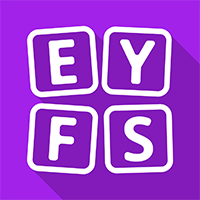 This course aims to provide a gentle introduction to the expectations of the Early Years Foundation Stage and it can also act as a refresher for those wanting to update their knowledge. It will introduce you to some of the key documents and legislation that relate to Early Years providers, the process for registering with Ofsted and the various policies and procedures that need to be in place. It also covers learning and development requirements, how to observe and assess the progress of children in your care and the safeguarding and welfare requirements laid out in the EYFS Framework. Approved by CPD – Duration 60 mins*
This course aims to provide a gentle introduction to the expectations of the Early Years Foundation Stage and it can also act as a refresher for those wanting to update their knowledge. It will introduce you to some of the key documents and legislation that relate to Early Years providers, the process for registering with Ofsted and the various policies and procedures that need to be in place. It also covers learning and development requirements, how to observe and assess the progress of children in your care and the safeguarding and welfare requirements laid out in the EYFS Framework. Approved by CPD – Duration 60 mins* -
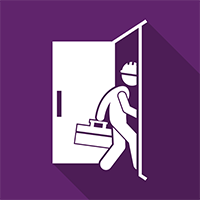 Every day, thousands of people are exposed to situations where they are left alone in work premises, when visiting members of the public during their working day, or working from home. There are many risks associated with working in isolation, without the support of colleagues. These risks can include accidents and violence. This online Introduction to Personal Safety for Lone Workers course acts as an introduction to personal safety for lone workers and applies to those that work alone within business premises, mobile workers and homeworkers. This Introduction to Personal Safety for Lone Workers online course covers the legal responsibilities of both employers and employees, some of the common security precautions that can be implemented, practical steps you can take to avoid conflict in lone worker situations and other elements that can contribute to lone worker safety.
Every day, thousands of people are exposed to situations where they are left alone in work premises, when visiting members of the public during their working day, or working from home. There are many risks associated with working in isolation, without the support of colleagues. These risks can include accidents and violence. This online Introduction to Personal Safety for Lone Workers course acts as an introduction to personal safety for lone workers and applies to those that work alone within business premises, mobile workers and homeworkers. This Introduction to Personal Safety for Lone Workers online course covers the legal responsibilities of both employers and employees, some of the common security precautions that can be implemented, practical steps you can take to avoid conflict in lone worker situations and other elements that can contribute to lone worker safety.Introduction to Personal Safety for Lone Workers Modules
Lone Worker Personal Safety: The Basics The Law: Responsibilities Assessing the Risks Personal Safety Solutions Practical Tips to Avoid Conflict Reporting and Recording Incidents Approved by IIRSM & IOSH - Duration 45 mins* -
 At the end of this course, candidates will have an understanding of what a risk assessment is and how to complete one. To achieve this the course will define important terms, provide some basic background information to explain how important risk assessments are and discuss some of the legislation that applies. It will then go on to provide practical advice on how to identify hazards and analyse risk before finishing off by explaining the responsibilities of both employers and employees with regards to risk assessment. Approved by IIRSM & CPD- Duration 90 mins*
At the end of this course, candidates will have an understanding of what a risk assessment is and how to complete one. To achieve this the course will define important terms, provide some basic background information to explain how important risk assessments are and discuss some of the legislation that applies. It will then go on to provide practical advice on how to identify hazards and analyse risk before finishing off by explaining the responsibilities of both employers and employees with regards to risk assessment. Approved by IIRSM & CPD- Duration 90 mins*

